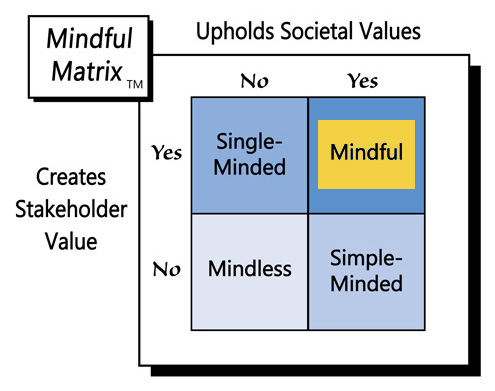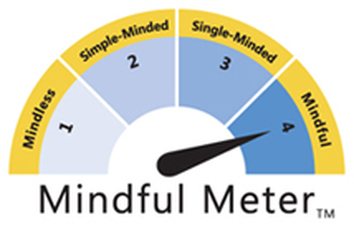For many years, America’s biggest e-tailer has banned paid reviews. Consequently, a company selling shoes on Amazon can’t pay ‘Paul’ to write a review about the sneakers he just received. However, Amazon has allowed vendors to give free merchandise to reviewers in exchange for their evaluations, provided that reviewers disclose that the items they’ve reviewed were gifts. So, Paul could post something like this:
“The X-Glide 300 is the most comfortable running shoe I’ve owned. Its padded foot-bed and ‘spring-step’ sole absorbs shock and cushions impact. It has a soft and breathable upper. It’s also very light-weight, which makes a big difference during a long run. I received a pair of X-Glide 300s from the manufacturer.”
Recently, however, Amazon announced that even these types of reviews will be banned. Why? It’s hard for reviewers not to be biased when they receive the products they’re reviewing for free. True, accepting a pair of sneakers is not the same as getting cash, but shoes are still significant compensation that can persuade recipients to rate them more favorably because they didn’t have to pay for them.
In general, the receipt of a gift makes people feel a need to reciprocate: “She gave me something, so I should give her something.” It doesn’t make much sense for a reviewer to give a product to a company, but the reviewer can give something even more valuable—a good review.
However, don’t disclaimers help prospective customers know that a review may be biased? Apparently such disclosures are not as effective as one would hope. ReviewMeta, a review aggregator and analyzer, found that one in five Amazon reviews contained a disclaimer and suggested that when they’re that common, many consumers “accept them without question.”
Compounding the problem, Amazon has had the habit of “factoring these paid reviews in the actual one-to-five star rating system,” although, giving them lesser weight than verified purchases. So, consumers who just scan the quantitative results to find the highest star ratings may not be aware that those figures have been pushed up by reviews of products that the reviewers received for free.
How much exactly do the free-product reviews skew the numeric results? ReviewMeta found that such reviews tend to be “0.38 stars more positive than their objective counterparts.” Such a difference may seem small, but as Yahoo Finance suggests, the difference is often enough to push a product into the higher range of rankings, giving it a real edge in Amazon search results.
In one particular case, ReviewMeta found an umbrella with 121 reviews and an average star rating of 4.7. All but four of those reviews, however, came from people who received the umbrella for free. The reviewers who paid for their umbrellas gave an average rating of just 2.7. This is pretty convincing empirical evidence of reciprocity and the notion that reviewers have a hard time being objective when they don’t have to pay for the product they’re reviewing.
As mentioned at the onset, Amazon has decided to revise its review policy, so now the e-commerce giant prohibits:
- “Creating, modifying, or posting content in exchange for compensation of any kind (including free or discounted products) or on behalf of anyone else” and
- “Offering compensation or requesting compensation (including free or discounted products) in exchange for creating, modifying, or posting content”
The revised policy applies to virtually everything sold on Amazon, with one notable exception—books. Amazon will allow book authors and publishers to “continue to provide free or discounted copies of their books to readers, as long as the author or publisher does not require a review in exchange or attempt to influence the review.”
Of course, books are no small thing for Amazon; they’re what started the e-commerce giant’s success. In 2014, Forbes reported that Amazon had $5.25 billion in sales from books, representing about 7% of the company’s annual revenue. So, has Amazon created a convenient caveat in order to protect the sales of one of its principal products? No.
There are legitimate reasons for treating books differently, the main one being that most books cost relatively little, but they require considerable effort to review. For instance, the sneakers mentioned earlier might retail for $90 or more, while many books sell for $30 or less. In addition, a review of the sneakers probably won’t take much time. Someone could conceivably wear them for a couple of hours and be ready to write a short summary of their experience.
Reviewing a book, in contrast, is a much more time-intensive process that also requires more insight than the typical product. Depending on their length, books can take days, weeks, or months to read. Likewise, a person can easily spend several hours or more writing a thorough review.
When you put on a pair of sneakers that someone gives you, you know pretty quickly whether you like them or not, and if not, you quickly take them off. When you start reading a book, it takes time to know how good it is, but even after you realize it’s not great, you still need to keep reading it in order to offer a thorough review. That’s why when someone gives us a book about a topic we’re not really interested in, we may think, “Ugh. Now I need to spend some significant time doing something I really don’t want to do.”
So, when reviewers receive sneakers for free, even if the sneakers aren’t the best, the reviewers might rate them highly because they get some value from them, and their review didn’t cost them much time or effort. On the other hand, book reviewers gain little benefit from reading bad books. In fact, they may feel like their considerable effort cost them time and potential enjoyment of other things, so their reviews are much more likely to be true to their experience.
Unfortunately, the full impact of Amazon’s new review policy will take time to be felt, as there will be no deletion of existing free-product-related reviews. Those biased evaluations will just need to disappear over time as they’re replaced by newer reviews. Still, the e-tailer’s push for more objective product information is a great step forward for consumers, as well as a strategy that will benefit suppliers of higher-quality products. As a result, Amazon’s prohibition of reviews motivated by free products represents “Mindful Marketing.”
Learn more about the Mindful Matrix and Mindful Meter.
Check out Mindful Marketing Ads and Vote your Mind!




 RSS Feed
RSS Feed